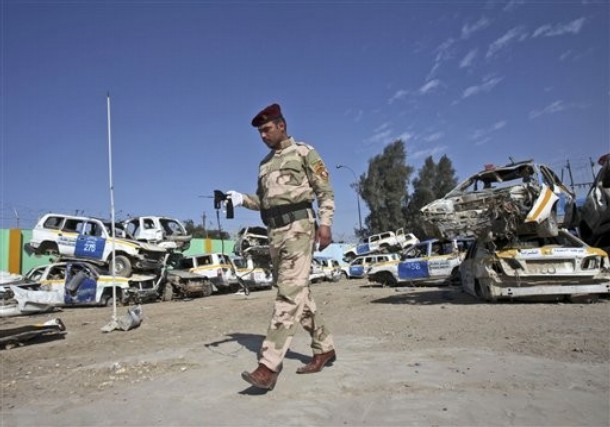Can America put Iraq into our corner geopolitically?

Henry Kissinger's op-ed on Iraq argues that the U.S. must retain influence in Iraq even as it withdraws its troops. Sounds reasonable enough. Unfortunately, he doesn't quite say how, outside of a hinted suggestion regarding a special envoy, more high-level visits and the formulation of a strategic vision for Iraq. Nor does he say toward what end U.S. diplomacy and leverage in Iraq should be put to use, except for a vague reference to Iran's nuclear program.
I think it's clear that the U.S. is going to retain some leverage over Iraq for the next few years and there's no reason why the U.S. shouldn't work overtime to keep relations with Iraq friendly. But the situation inside Iraq is very fluid at the moment: the government has been preoccupied with domestic affairs and shoring up its own, very fragile, institutions. No clear picture has emerged yet on where the country sees itself geopolitically in the Middle East.
But Kissinger's piece is also a harbinger of Washington's worst tendencies. In its zeal to get Iraq onto the right side of the geopolitical scorecard, it could push the Obama administration into an even deeper role in Iraq's domestic politics with potentially disastrous results (ironically some of the same people who think the administration should govern Iraq have no faith in the administration's ability to govern America). Even before Kissinger's piece we have heard calls for the Obama administration to get more involved in micro-managing Iraq's political evolution - as if we have a long history of success in such matters, or even the wherewithal to produce an outcome to our liking, especially if we remain committed to a democratic Iraq.
Indeed, the administration's seemingly ad-hoc diplomacy toward the country may actually produce the best results. Proclaiming that we have a strategic blueprint for Iraq's development would likely set off groups inside Iraq that resent American influence and would put American-friendly leaders on the defensive politically.
(AP Photo)











